In the 1990s after I had completed my Ph.D. in Medical Sociology my first lectureship was in Public Health at the University of Aberdeen where my job title included that of coordinator of the B.Sc. Health Sciences. At the time I was required to do a variety of training modules and workshops on education at university level. Since there was the option to register for the Master of Education (M.Ed.) in the Department of Education at the University of Aberdeen, I thought I might as well gain more insight into education and learning than the required basic training and get a degree out of it at the same time. For a long time, I considered myself as odd, starting a lower degree after having completed a higher one. I bit like the guy I met thirty years ago who had completed to Ph.D.’s, one in Chemistry and then afterwards one in Divinity.
My view changed a few years ago when a colleague (with a Ph.D.) commenced an M.Sc. for a different reason. On this occasion to become a qualified practitioner, through the completion of a practice-based M.Sc. in Mental Health Nursing. The M.Sc. programme started a decade after the completion of a Ph.D. in Public Health.
And the idea for this blog sprang on me this morning when a colleague with a Ph.D. in Statistics and Epidemiology asked me for a reference to support his application for a place on an M.Sc. in Neuroscience. His argument for starting such M.Sc. is that he is actively involved in several neuro-psychology research projects and as a quantitative researcher he wants to have a greater understanding of the underpinning science and the wider topic area.
 Having successfully passed your Ph.D. viva is evidence that you study and learn effectively on your own, the subsequent M.Sc. can offer licensure (the right to practice) or greater insight into an academic field different from your Ph.D. one.
Having successfully passed your Ph.D. viva is evidence that you study and learn effectively on your own, the subsequent M.Sc. can offer licensure (the right to practice) or greater insight into an academic field different from your Ph.D. one.
Prof. Edwin van Teijlingen
Centre for Midwifery & Women’s Health
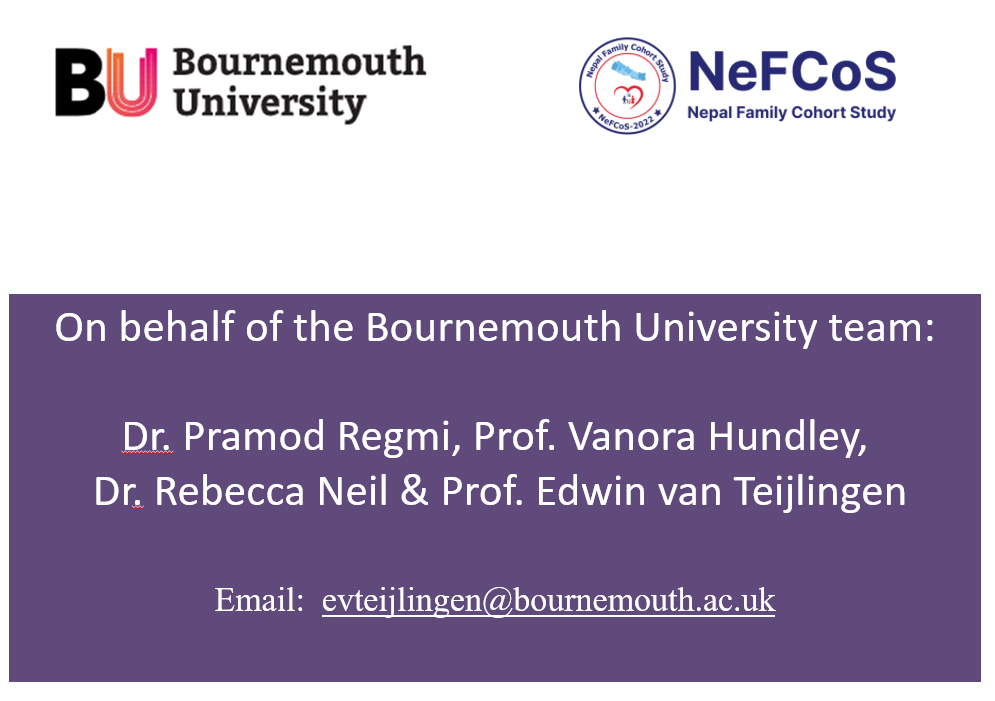 Colleagues working on our Nepal Family Cohort Study (NeFCoS) presented baseline data at a dissemination programme held today (March 28th) in Everest Hotel, Kathmandu. Bournemouth University is a key partner in this unique long-term follow-up study in Nepal. Our large international team is led by Dr. Om Kurmi, Associate Professor Research in the Centre for Healthcare and Communities at Coventry University. The Bournemouth University (BU) team comprises Dr. Pramod Regmi (Principal Academic-International Health), Dr. Edwin van Teijlingen (Professor of Reproductive Health), Dr. Rebecca Neal (Principal Lecturer in Exercise Physiology) and Dr. Vanora Hundley (Professor of Midwifery).
Colleagues working on our Nepal Family Cohort Study (NeFCoS) presented baseline data at a dissemination programme held today (March 28th) in Everest Hotel, Kathmandu. Bournemouth University is a key partner in this unique long-term follow-up study in Nepal. Our large international team is led by Dr. Om Kurmi, Associate Professor Research in the Centre for Healthcare and Communities at Coventry University. The Bournemouth University (BU) team comprises Dr. Pramod Regmi (Principal Academic-International Health), Dr. Edwin van Teijlingen (Professor of Reproductive Health), Dr. Rebecca Neal (Principal Lecturer in Exercise Physiology) and Dr. Vanora Hundley (Professor of Midwifery).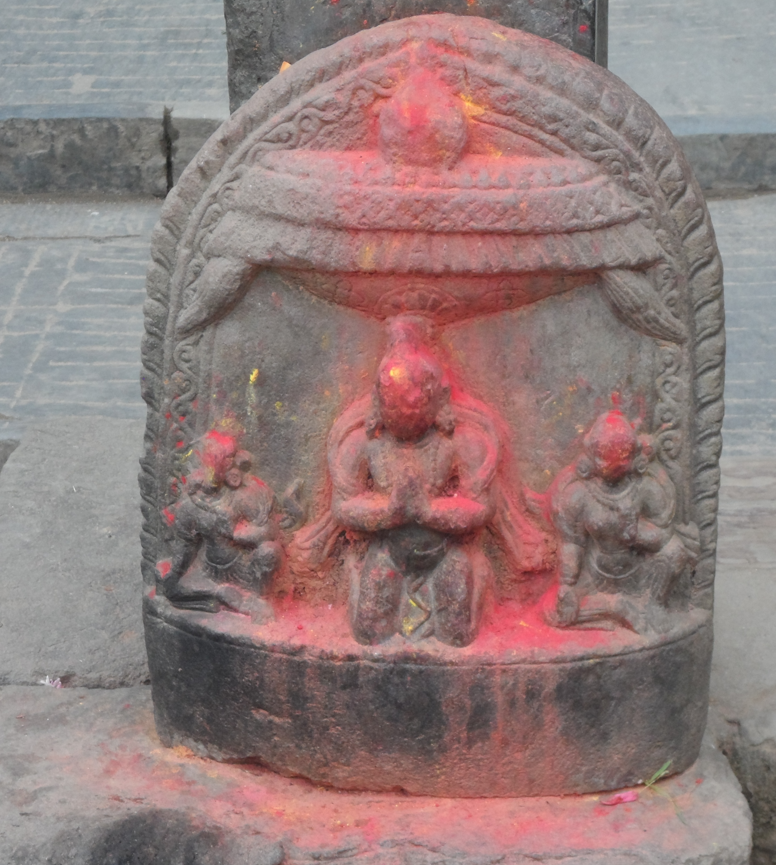
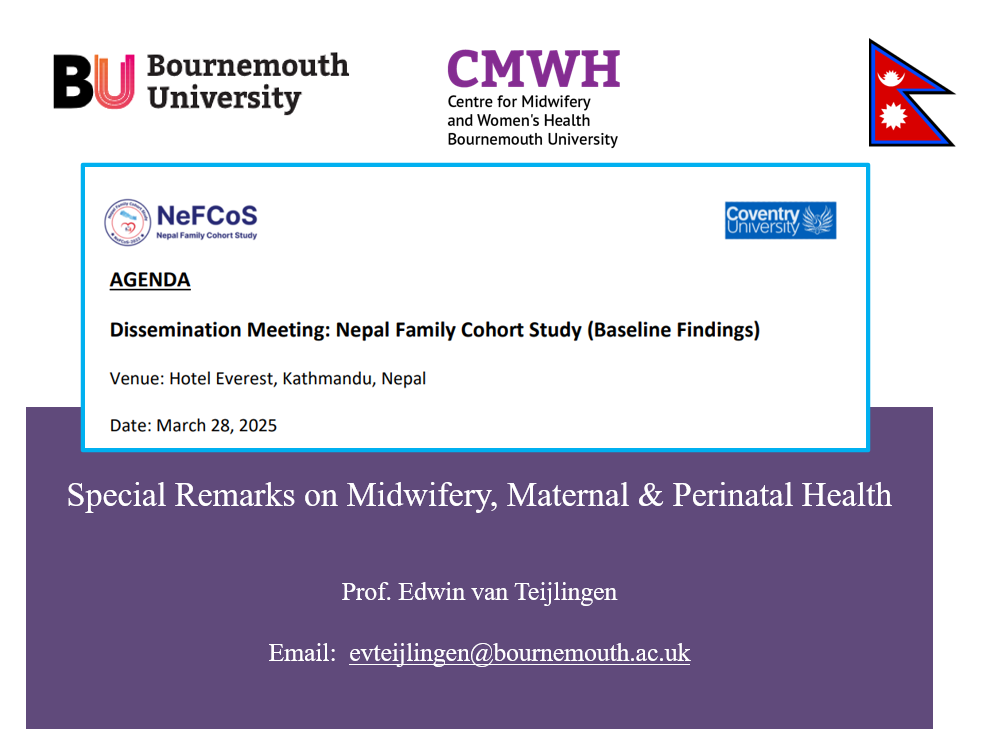
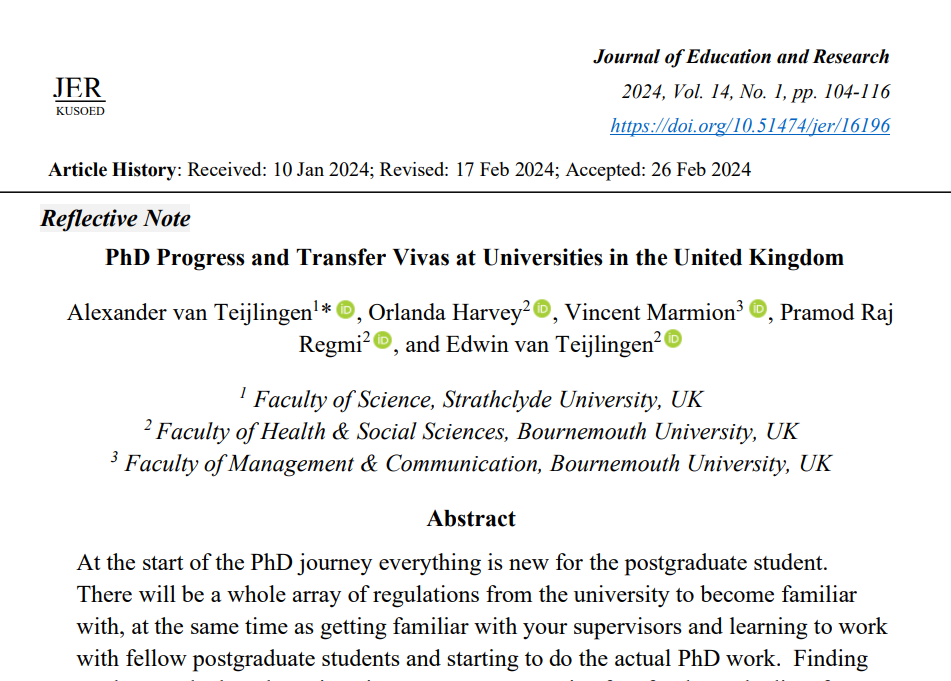
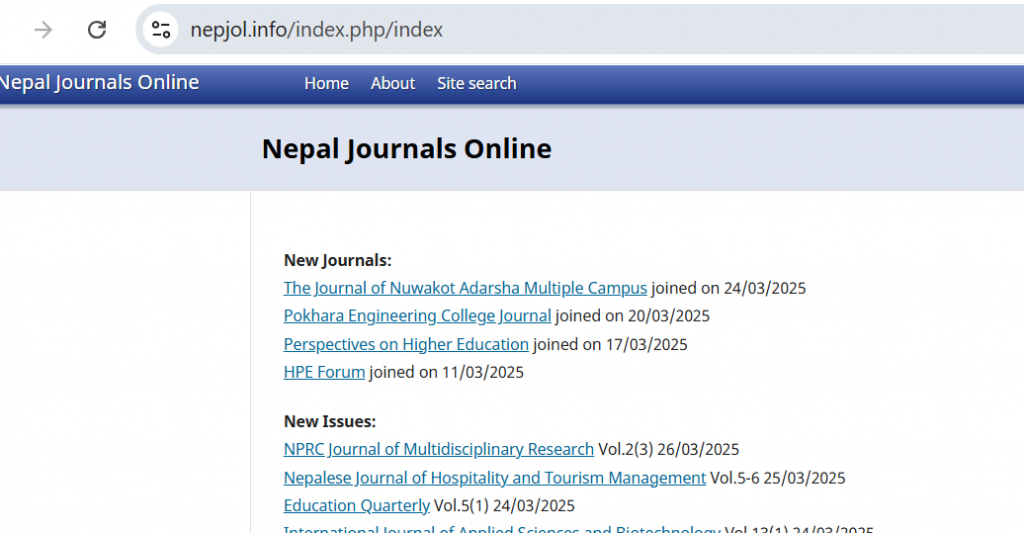


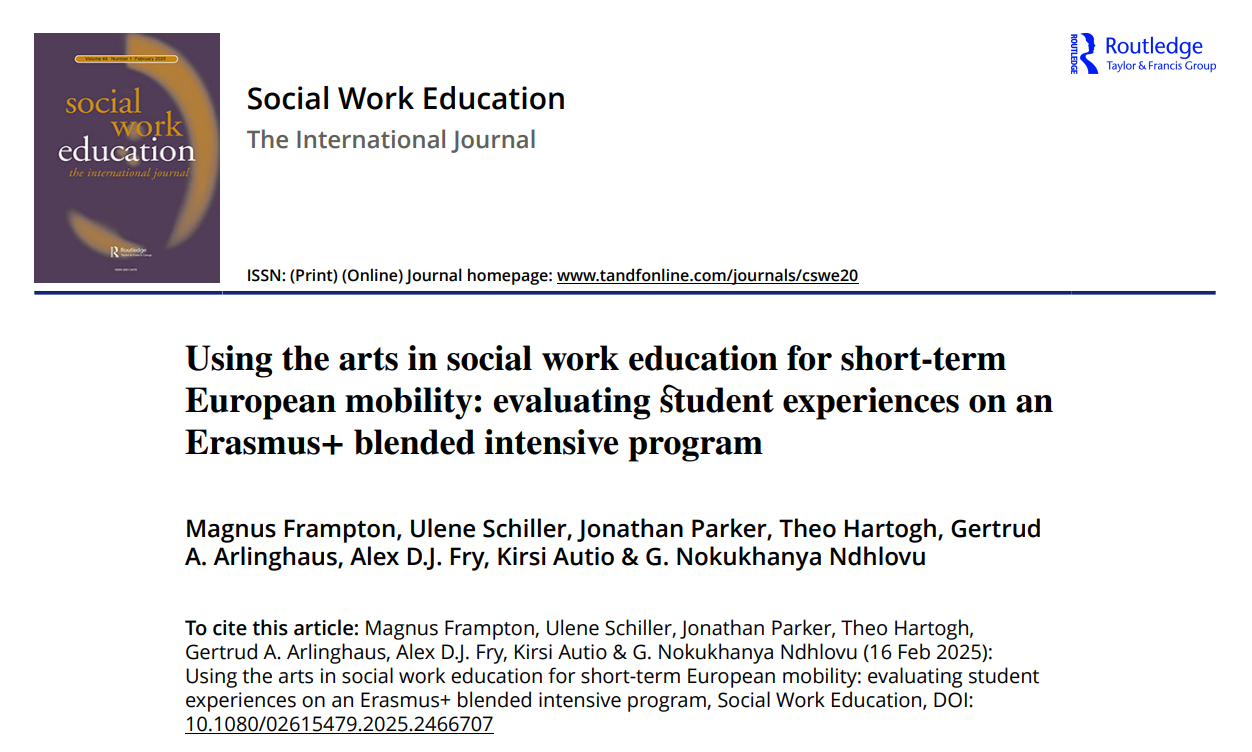
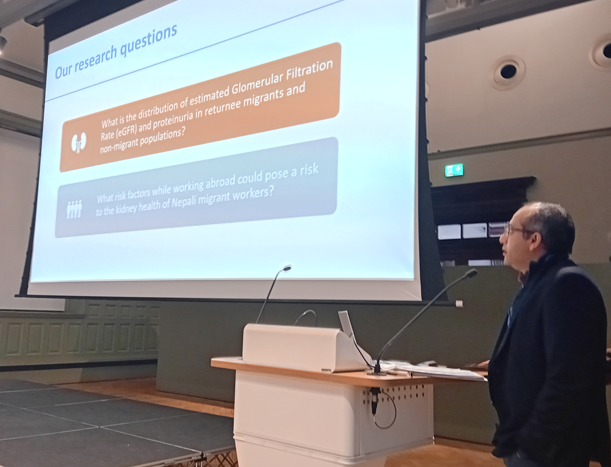
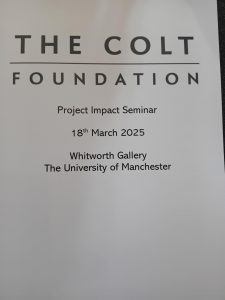
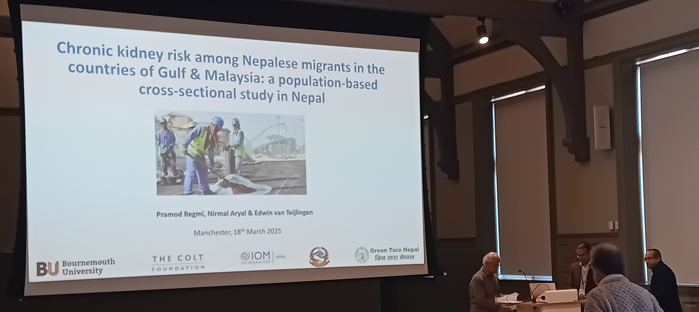

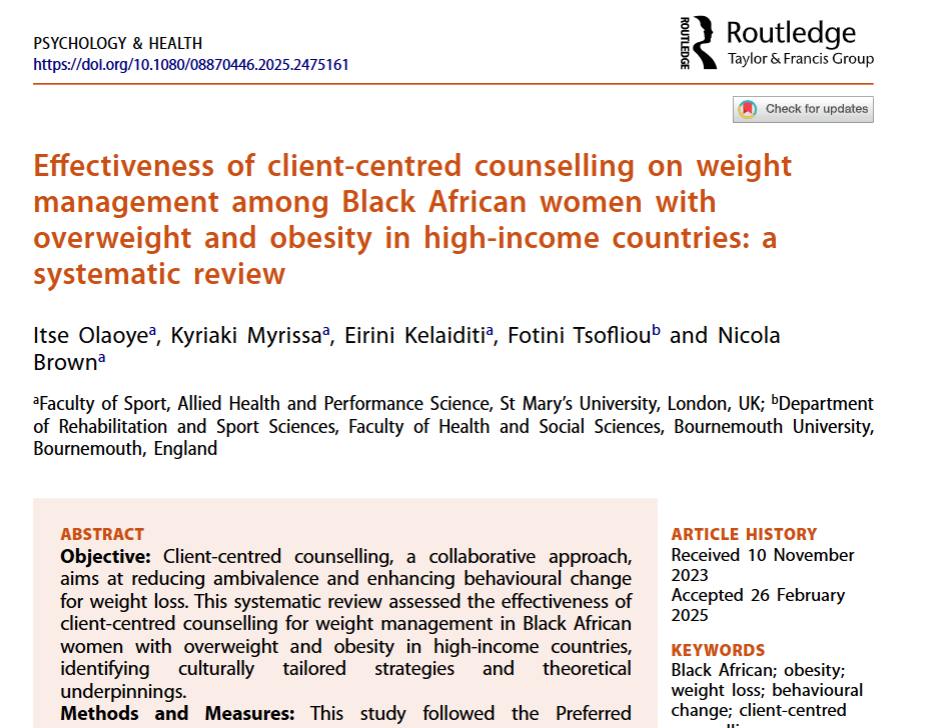

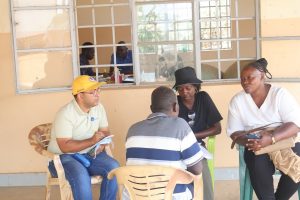
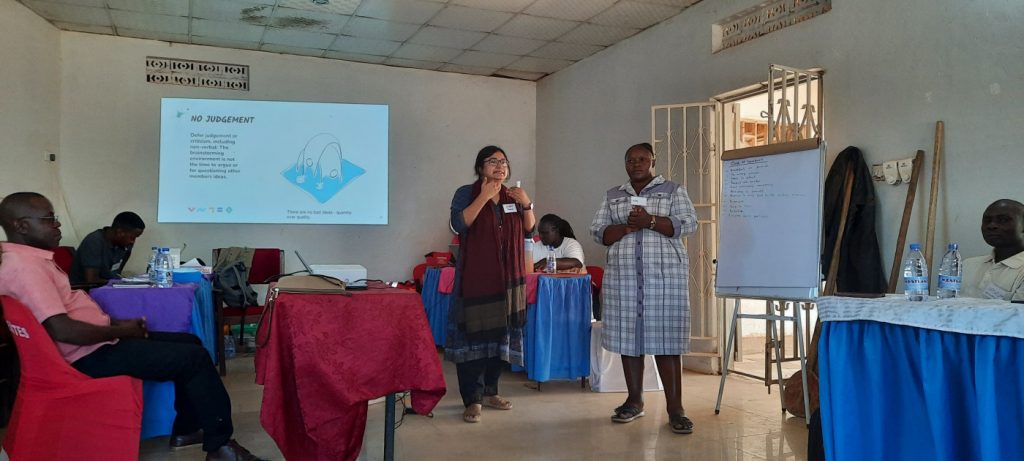



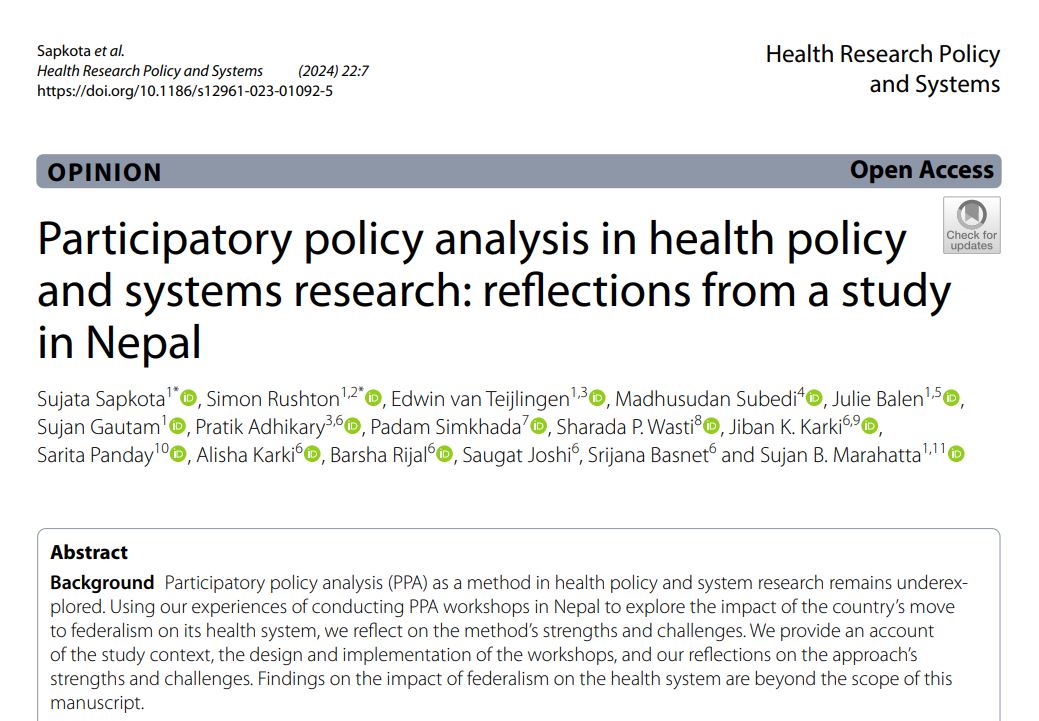
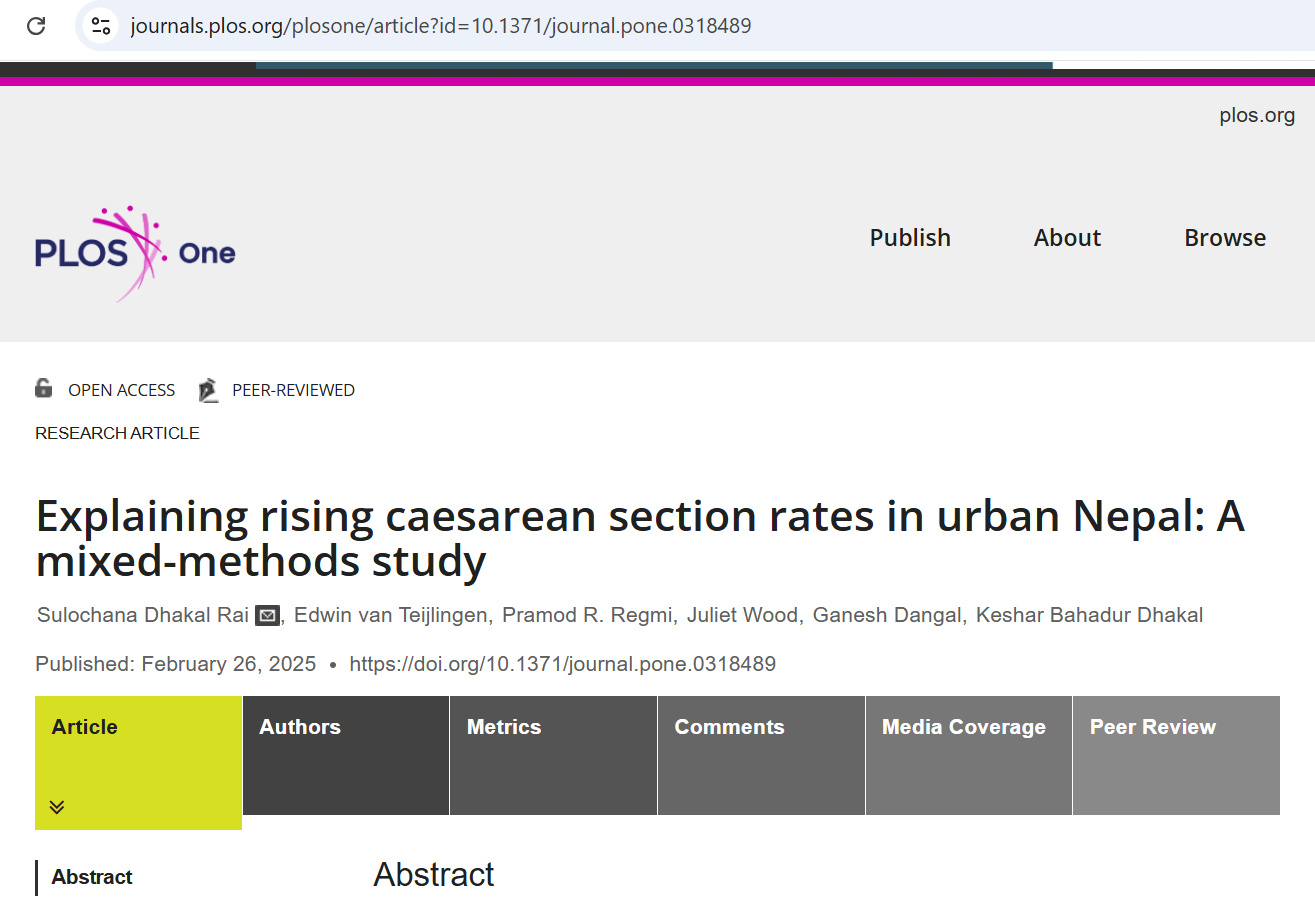
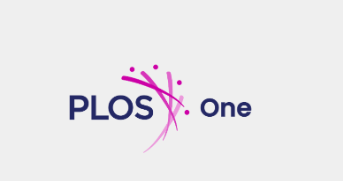

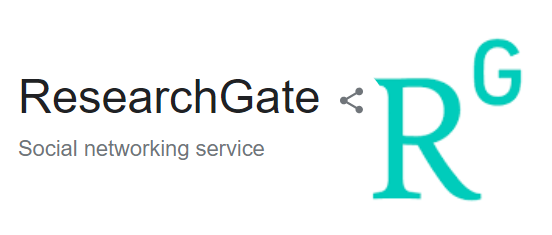


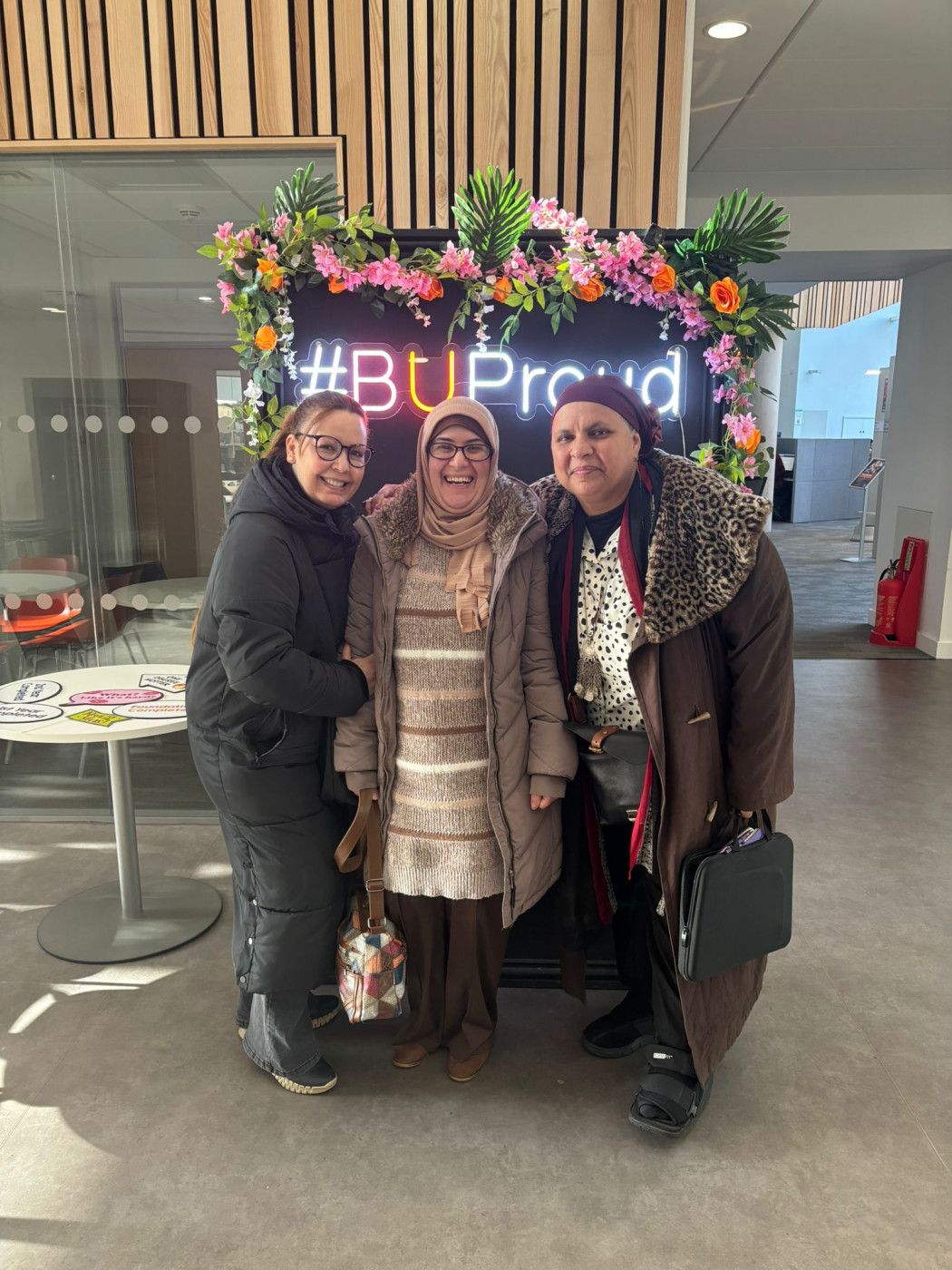
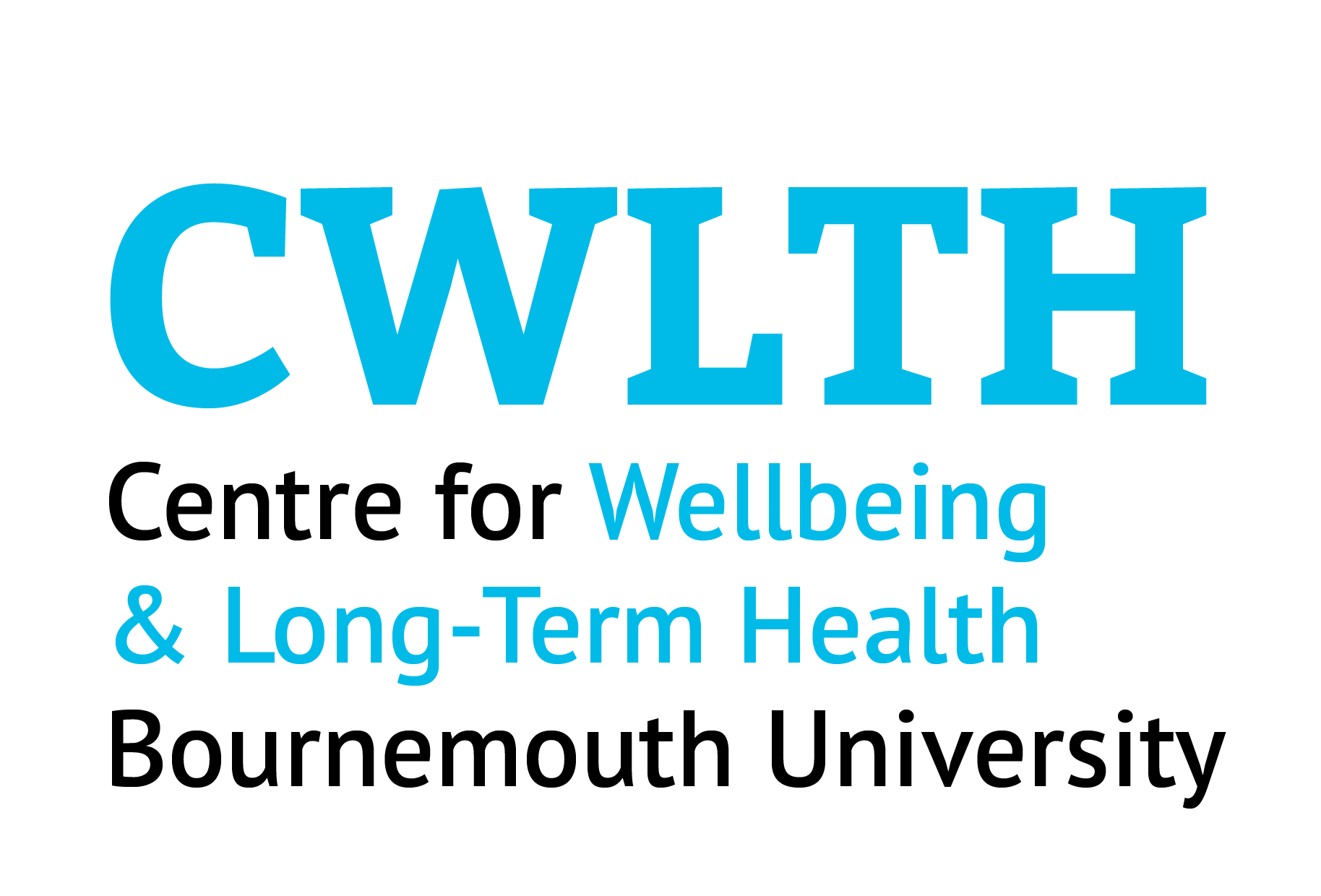


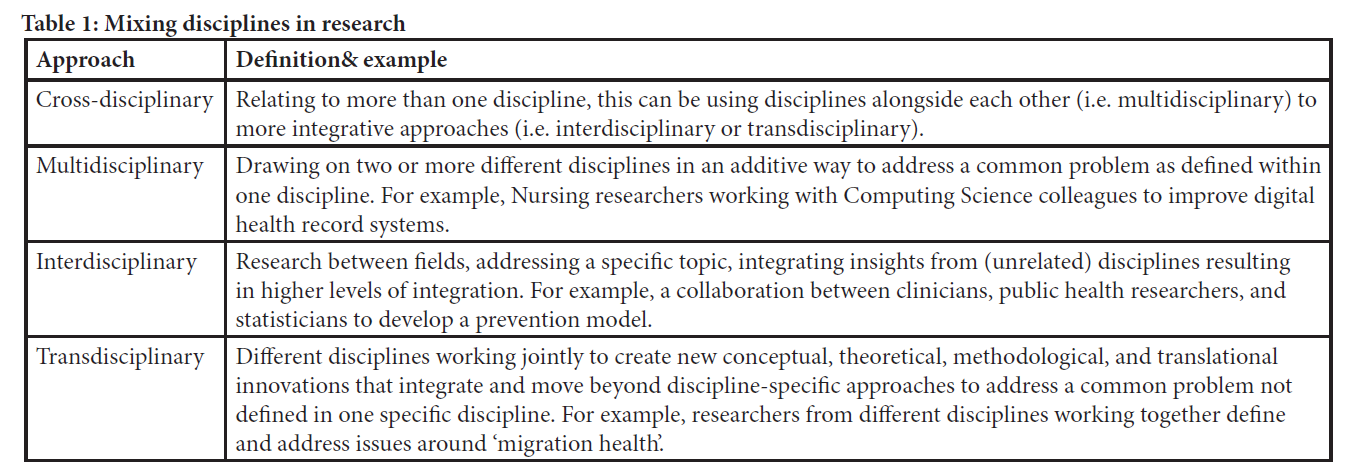
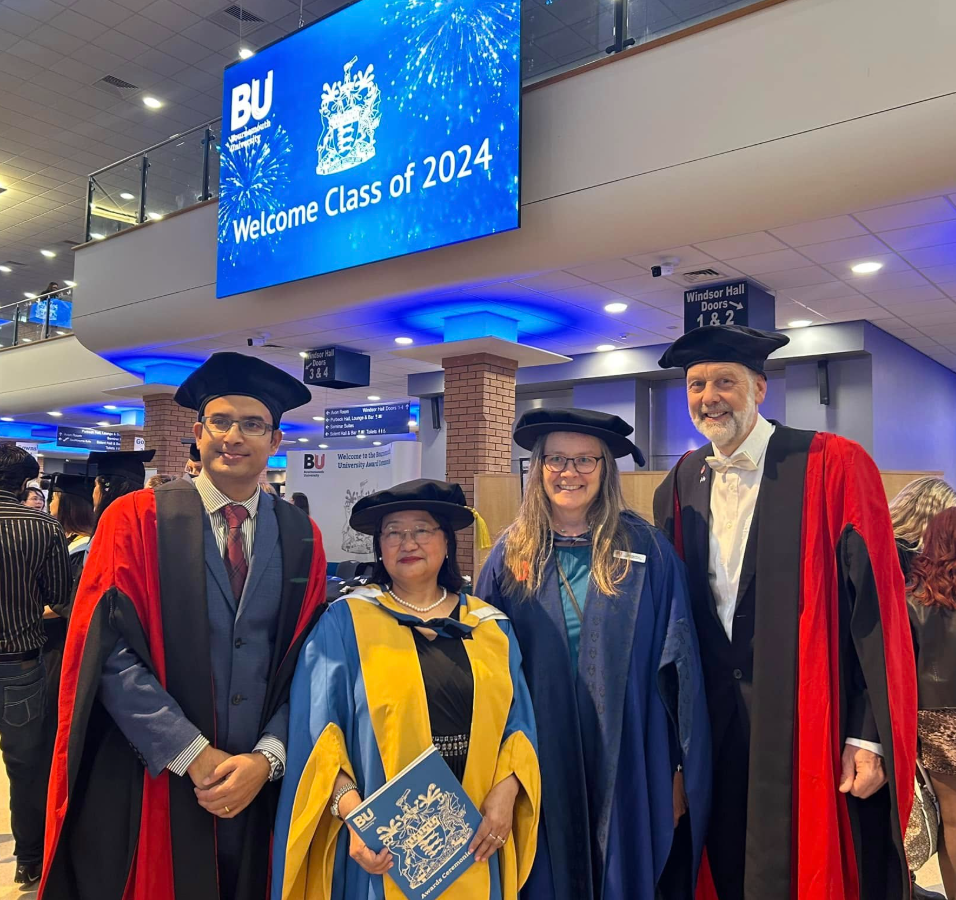

 Last month we reported on this Bournemouth University Research Blog (click here!) that Ms. Amshu Dhakal, presented findings from our Nepal Federal Health System Project in Nepal. Amshu’s presentation at the Nepal Health Conclave 2024, organised by the Ministry of Health and Population and supported by WHO (World Health Organization) Nepal and UNFPA, resulted in an online article in Nepal. This article in Nepali in Swasthya Khabar Patrika features lessons learnt and evidence from our research project “The Impact of Federalisation on the Health System of Nepal.”
Last month we reported on this Bournemouth University Research Blog (click here!) that Ms. Amshu Dhakal, presented findings from our Nepal Federal Health System Project in Nepal. Amshu’s presentation at the Nepal Health Conclave 2024, organised by the Ministry of Health and Population and supported by WHO (World Health Organization) Nepal and UNFPA, resulted in an online article in Nepal. This article in Nepali in Swasthya Khabar Patrika features lessons learnt and evidence from our research project “The Impact of Federalisation on the Health System of Nepal.”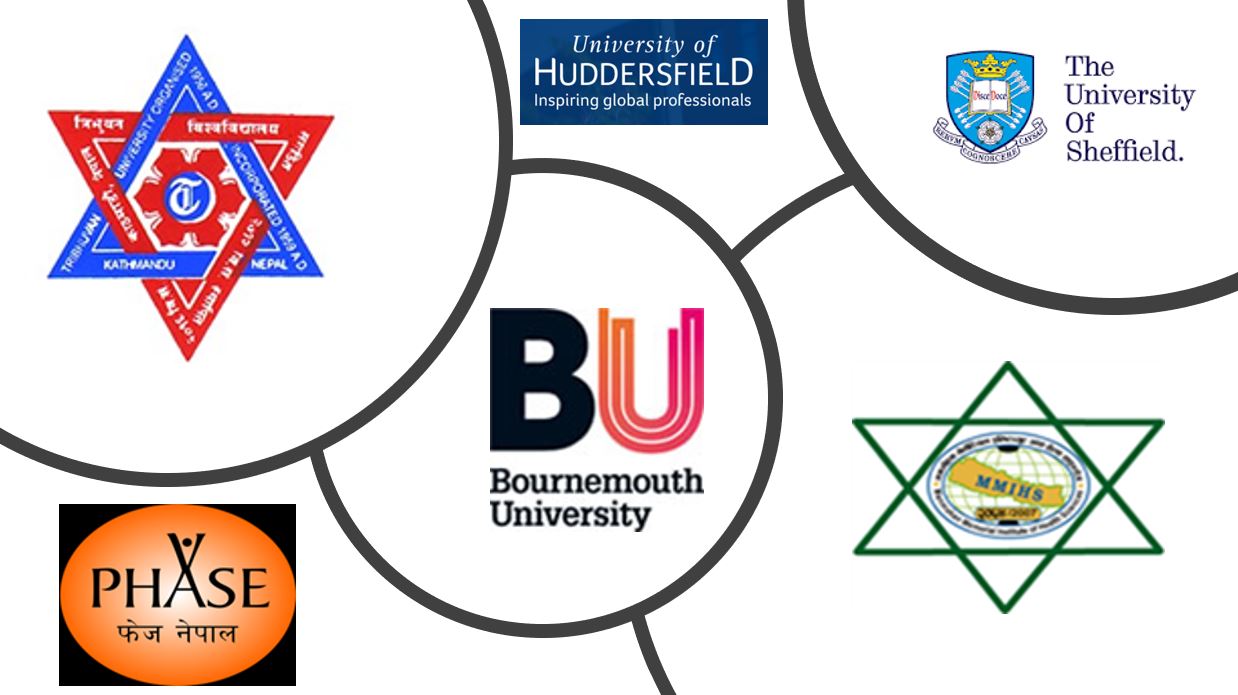
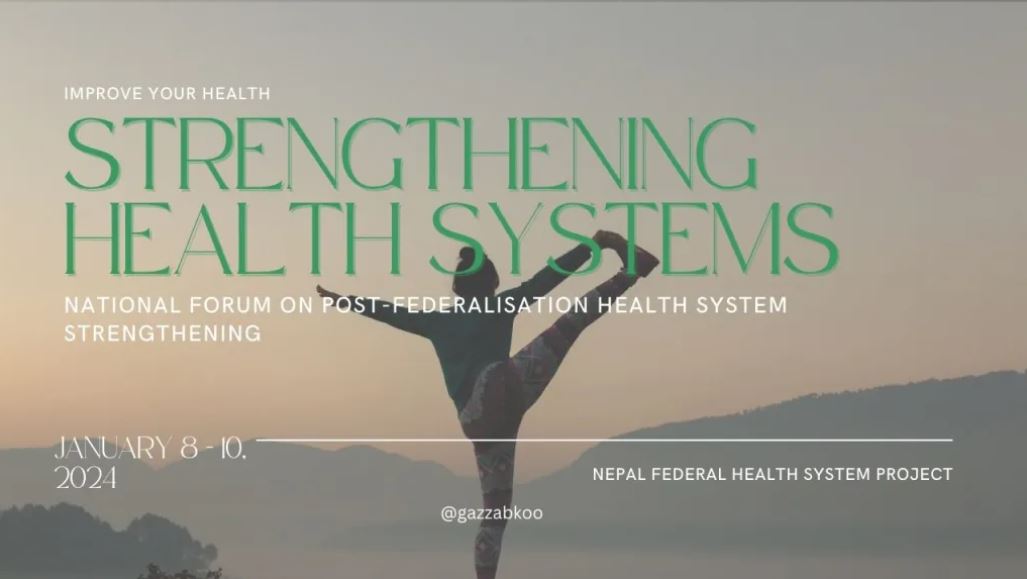 This is one of several news articles from this project which have appeared in both English and Nepali in national media in Nepal.
This is one of several news articles from this project which have appeared in both English and Nepali in national media in Nepal. 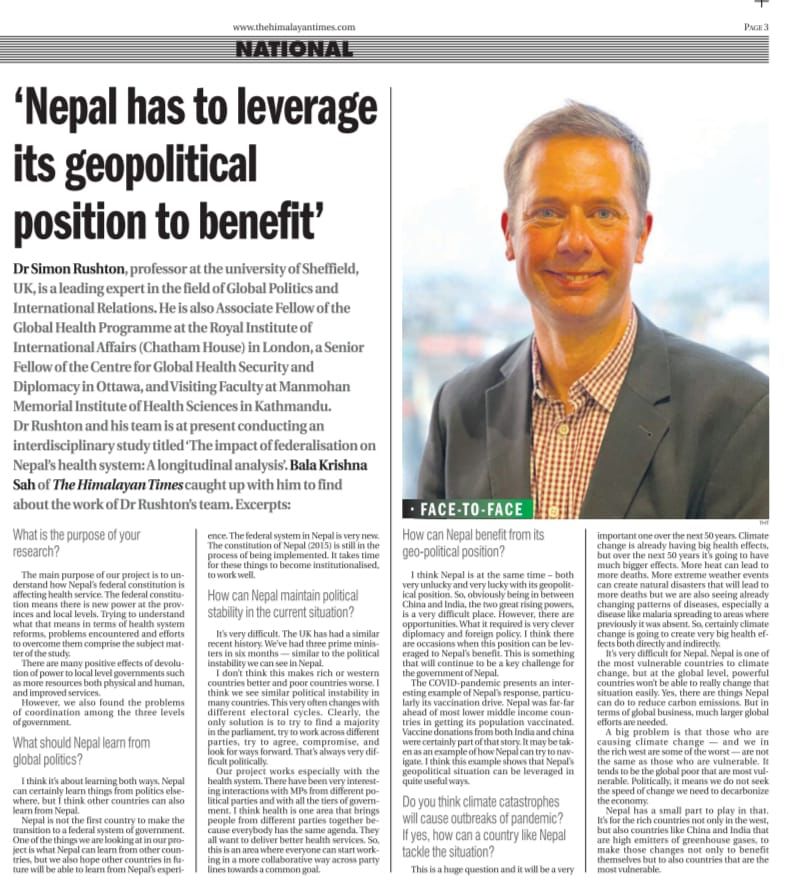 Our interdisciplinary research project ‘
Our interdisciplinary research project ‘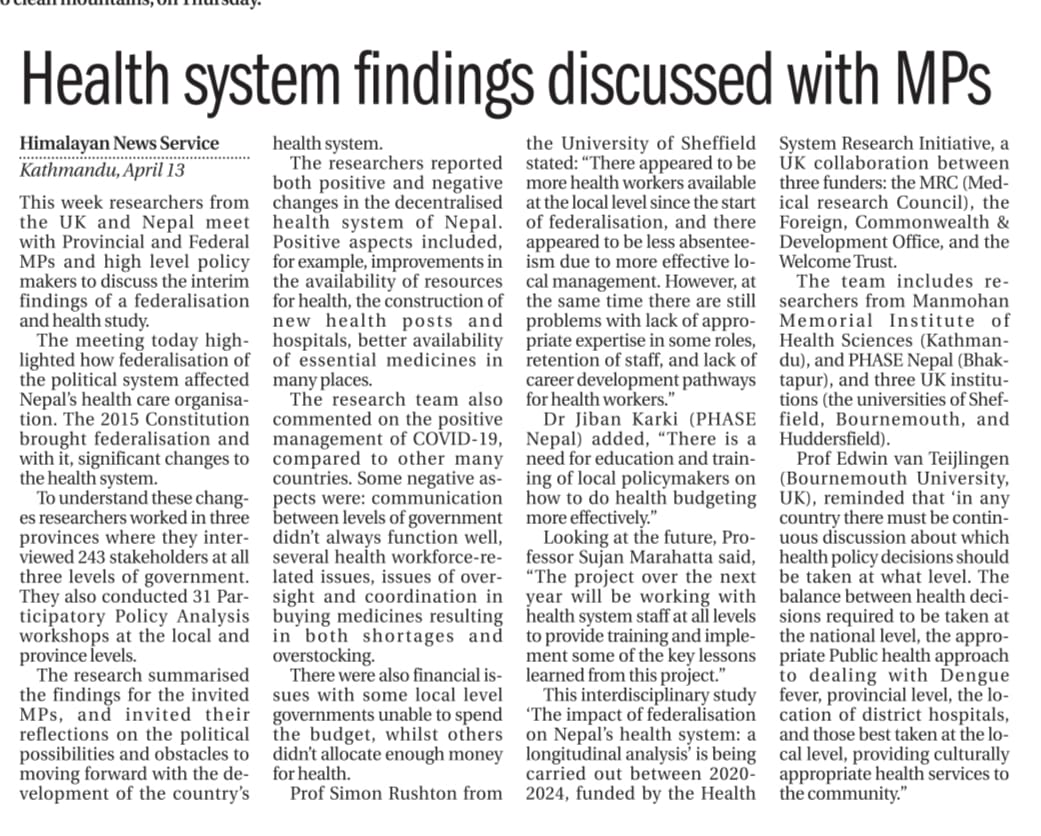
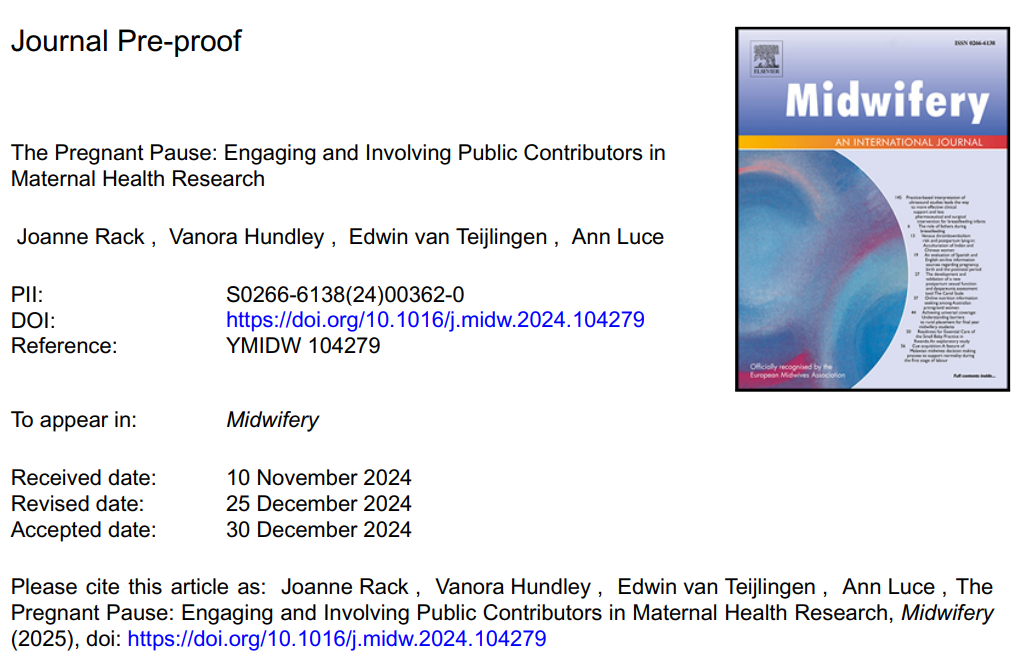












 SPROUT: From Sustainable Research to Sustainable Research Lives
SPROUT: From Sustainable Research to Sustainable Research Lives BRIAN upgrade and new look
BRIAN upgrade and new look Seeing the fruits of your labour in Bangladesh
Seeing the fruits of your labour in Bangladesh Exploring Embodied Research: Body Map Storytelling Workshop & Research Seminar
Exploring Embodied Research: Body Map Storytelling Workshop & Research Seminar Marking a Milestone: The Swash Channel Wreck Book Launch
Marking a Milestone: The Swash Channel Wreck Book Launch ECR Funding Open Call: Research Culture & Community Grant – Application Deadline Friday 12 December
ECR Funding Open Call: Research Culture & Community Grant – Application Deadline Friday 12 December MSCA Postdoctoral Fellowships 2025 Call
MSCA Postdoctoral Fellowships 2025 Call ERC Advanced Grant 2025 Webinar
ERC Advanced Grant 2025 Webinar Update on UKRO services
Update on UKRO services European research project exploring use of ‘virtual twins’ to better manage metabolic associated fatty liver disease
European research project exploring use of ‘virtual twins’ to better manage metabolic associated fatty liver disease